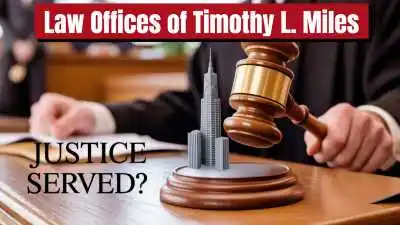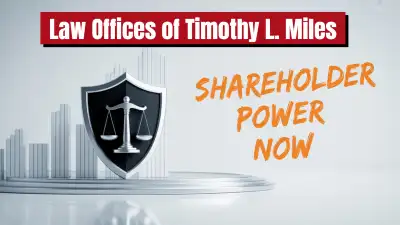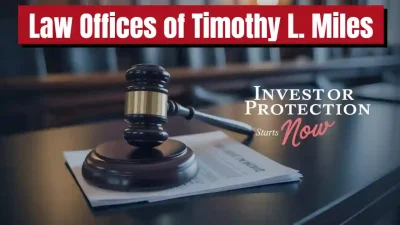Introduction to Securities Class Action lawsuits
Securities class action lawsuits serve as a vital mechanism for investors seeking justice in the face of corporate misconduct. These collective legal actions empower individuals and institutional investors alike to hold companies accountable for violations of securities laws. This guide aims to provide a thorough understanding of securities litigation, focusing on the detail of class action lawsuits, the certification process, and essential resources for investors navigating this complex legal landscape.
Understanding Securities Fraud Class Action Lawsuits
Securities litigation represent a significant legal mechanism for investors who have suffered financial losses due to corporate malfeasance. These lawsuits typically arise when a company or its executives engage in deceptive practices that mislead investors about the company’s financial health or prospect.
The goal of such litigation is to hold the perpetrators accountable and secure compensation for the affected investors. Securities fraud encompasses a range of activities, including insider trading, false financial statements, and misleading disclosures, all of which can severely impact market integrity and investor confidence.

In a class action context, a group of investors collectively brings the lawsuit against the defendant, which could be a corporation or its executives. This collective approach is particularly powerful in the securities realm because it allows individual investors, who might not have the resources to pursue litigation on their own, to band together and seek justice.
The class action mechanism ensures that the legal process is efficient and that the interests of all affected investors are represented.
The complexity of securities fraud class action lawsuits requires plaintiffs to navigate a labyrinth of legal standards and procedural hurdles. One of the most significant challenges is surviving a motion to dismiss, a legal maneuver by the defendants to have the case thrown out before it reaches trial.
Understanding the nuances of securities class actions is crucial for any stakeholder involved, as it sets the stage for the strategic decisions that will follow.
The Role of Institutional Investors
Institutional investors, such as pension funds and mutual funds, play a crucial role in securities litigation. Their substantial financial stakes and ability to influence litigation outcomes make them key players in these cases. By participating in class actions, they not only seek redress for their losses but also help uphold the interests of all shareholders.
Importance of Investor Protection
Investor protection is paramount in the financial markets. Securities class actions provide a mechanism for recovering damages and holding corporations accountable for their actions. This legal recourse is essential for maintaining trust in the financial system and ensuring that companies operate transparently and ethically.
The Class Certification Process in Securities Litigation
Class certification is a pivotal step in securities class action lawsuits. It determines whether a group of plaintiffs can collectively pursue their claims in a single lawsuit. Understanding the requirements for class certification is crucial for investors considering participation in such actions.
Key Requirements Under Rule 23
To achieve class certification, plaintiffs must satisfy specific criteria outlined in Federal Rule of Civil Procedure 23. These include:
- Numerosity: The class must be so numerous that joining all members individually is impractical. Generally, a class with more than 40 members meets this requirement.
- Commonality: There must be questions of law or fact common to the class. This means that the claims of the class members should arise from the same event or practice.
- Typicality: The claims of the representative parties must be typical of those of the class. This ensures that the interests of all class members are adequately represented.
- Adequacy: The representative parties must fairly and adequately protect the interests of the class. Courts assess the qualifications of class counsel and any potential conflicts of interest.
The Role of Rule 23(b)(3)
In addition to the prerequisites under Rule 23(a), plaintiffs must also meet the requirements of Rule 23(b)(3). This rule mandates that:
- Predominance: Common questions of law or fact must predominate over any questions affecting only individual members. This requires a close examination of the claims and defenses involved.
- Superiority: A class action must be the superior method for fairly and efficiently adjudicating the controversy. Courts consider factors such as the complexity of the case and the potential for inconsistent judgments.
The Importance of Expert TestimonyIn Securities Class Actions
Expert testimony plays a critical role in securities class action litigation, particularly during the class certification phase. Courts often rely on specialized financial and economic evidence to determine whether the certification requirements have been met.
Demonstrating Market Efficiency
One of the key concepts in securities litigation is the fraud-on-the-market theory, which assumes that stock prices reflect all publicly available information. To establish this theory, plaintiffs often present expert testimony to demonstrate market efficiency. This involves analyzing how quickly and accurately stock prices adjust to new information.

Analyzing Loss Causation
Loss causation links the alleged misconduct to the economic harm suffered by investors. Expert witnesses may conduct event studies to show how stock prices reacted to corrective disclosures. This analysis is crucial for establishing the connection between the company’s actions and the investors’ losses.
Navigating the Challenges of Securities Litigation
Securities litigation presents numerous challenges for both plaintiffs and defendants. Understanding these challenges is essential for anyone involved in a class action lawsuit.
Common Defense Strategies in Secur
Defendants often employ various strategies to challenge class certification and undermine the plaintiffs’ claims. Some common tactics include:
- Highlighting Individual Issues: Defendants may argue that individual circumstances among class members create significant differences, making class treatment inappropriate.
- Challenging Expert Testimony: Defendants frequently counter plaintiffs’ expert analyses, questioning their methodologies and conclusions.
The Role of the Private Securities Litigation Reform Act (PSLRA) On Securities Litigation
The PSLRA introduced significant changes to the landscape of securities class action litigation. One of its key provisions is the formal lead plaintiff selection process, which aims to appoint the most adequate plaintiff to represent the class. This process ensures that the interests of the class are effectively represented throughout the litigation.
Resources for Investors on Securities Class Actions
Investors seeking to navigate the world of securities class action lawsuits can benefit from various resources. These resources provide valuable information and support for individuals considering participation in litigation.
Legal Assistance in Securities Litigation
Engaging with experienced legal counsel is crucial for investors involved in securities litigation. Attorneys practicing in this field can provide guidance on the intricacies of class actions, help assess the viability of claims, and represent investors throughout the legal process.

Educational Materials
Numerous organizations and legal firms offer educational materials and resources related to securities litigation. These materials can help investors understand their rights, the legal process, and the potential outcomes of class action lawsuits.
Online Platforms and Forums
Online platforms and forums dedicated to securities litigation provide a space for investors to share experiences, seek advice, and connect with others who have faced similar challenges. These communities can offer valuable insights and support during the litigation process.
Conclusion
Securities class action lawsuits serve as a vital tool for investors seeking justice and accountability in the financial markets. Understanding the intricacies of the class certification process, the role of expert testimony, and the challenges involved in securities litigation is essential for anyone considering participation in such actions. By leveraging available resources and engaging with experienced legal counsel, investors can navigate this complex landscape and advocate for their rights effectively.
We hope you enjoy our Investor Hub. It serves as a centralized resource designed to equip investors with essential knowledge regarding securities litigation. From understanding the critical deadlines for filing as a lead plaintiff to navigating the settlement process, this resource provides authoritative guidance on all aspects of securities class actions. The information contained herein addresses the procedural mechanics of securities litigation, the substantive rights of shareholders, and the strategic considerations that influence litigation outcomes.
This article provides a comprehensive overview of securities class action lawsuits, emphasizing the importance of investor protection and the complexities of the legal process. By understanding the key elements of securities litigation, investors can make informed decisions and seek justice for their losses.
Contact the Law Offices of Timothy L. Miles for a Free Case Evaluation About Securities Litigation
We hope you find our Investor Hub education on your investment journey. If you have any questions about the Investor Hub, securities litigation, or on-going securities class actions, please contact the Law Offices of Timothy L. Miles, at no charge, for a free case evaluation. Call today and see what a securities litigation lawyer can do for you.
855/846-6529 or via e-mail at tmiles@timmileslaw.com. (24/7/365).
Timothy L. Miles, Esq.
Law Offices of Timothy L. Miles
Tapestry at Brentwood Town Center
300 Centerview Dr. #247
Mailbox #1091
Brentwood,TN 37027
Phone: (855) Tim-MLaw (855-846-6529)
Email: tmiles@timmileslaw.com
Website: www.classactionlawyertn.com
Facebook Linkedin Pinterest youtube
Investor Hub: Additional Resouces
Emerging Trends in Securities Litigation






